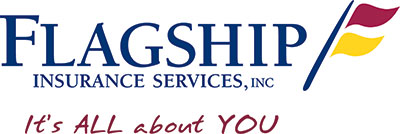In just a few short weeks, college students will put on their caps and gowns and celebrate graduation. For many, graduation will be exciting and scary. Some graduates will start their new jobs right away while others will continue looking for their dream jobs.
Either way, graduation signifies the official start to adulthood. Full time jobs, as well as other responsibilities will become part of everyday life. For parents, it’s time to celebrate the fact that their college student is finally off the payroll!
With all the changes college graduates will experience, figuring out what they need for insurance coverage can be tricky.
If you or someone in your family is graduating from college, here is some information that may help.
Review your state’s auto insurance requirements. Many states mandate a minimum level of liability insurance on an auto insurance policy. Unfortunately, each state may be different and the minimum coverage may not provide you with adequate protection. Talk to an independent insurance agent to learn more about coverages and available limits.
To find your state’s minimum requirements click here.
If you live in Wisconsin, your auto insurance policy must provide the following minimum liability coverage. Again, higher limits may be needed to provide you with adequate protection.
• $25,000 for injury or death of one person;
• $50,000 for injury or death of two or more people; and
• $10,000 for property damage.
Don’t forget to buy renters insurance. Signing a lease for an apartment is the start to independence. However, don’t forget about renters insurance. Most property owner’s insurance covers only the building. Personal property coverage provides protection against loss to your items such as clothes, shoes, furniture, electronics, small appliances, sporting equipment, etc. Personal liability comes into play if your actions lead to someone else’s injury. Minimum liability limits start at $100,000 and provide coverage for medical tests, surgeries, prescriptions, and their time off work.
Understand health insurance options. Many employers provide health insurance plans. Talk to your employer about the plans they offer. If they don’t provide a good plan, current law allows children to stay on their parent’s plan until age 26. However, based on where you live, it may make sense to purchase your own policy through the insurance exchange. Visit www.healthcare.gov to learn more.
Take advantage of retirement plans early. If you just received your diploma, you might think it doesn’t make sense to invest your hard-earned money in a retirement plan. While I understand you have rent payments and grocery bills, I recommend you start investing right away. There’s never a good time to start investing. However, the earlier you start, the better off you’ll be.
320.485.3800
